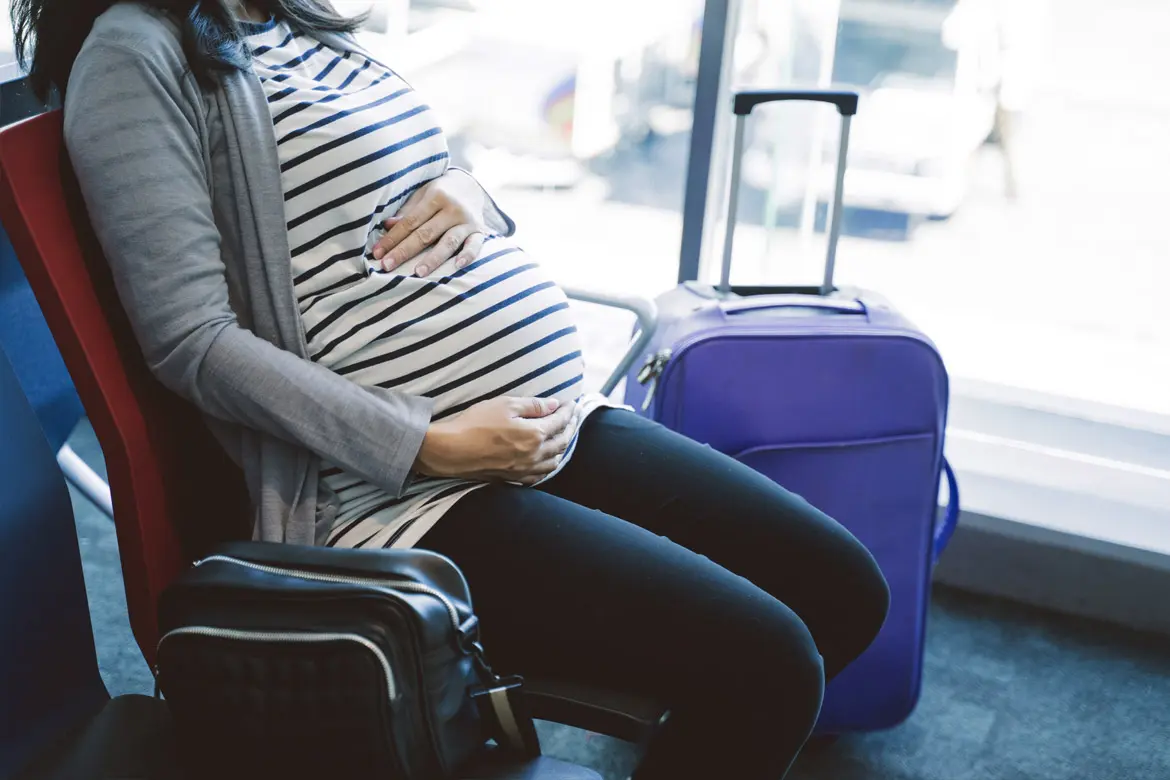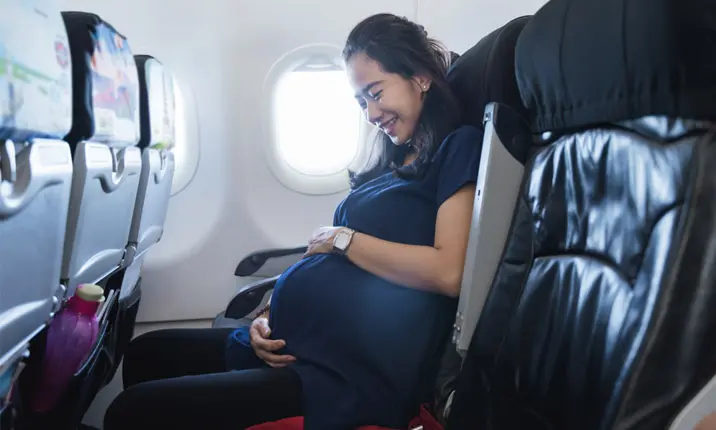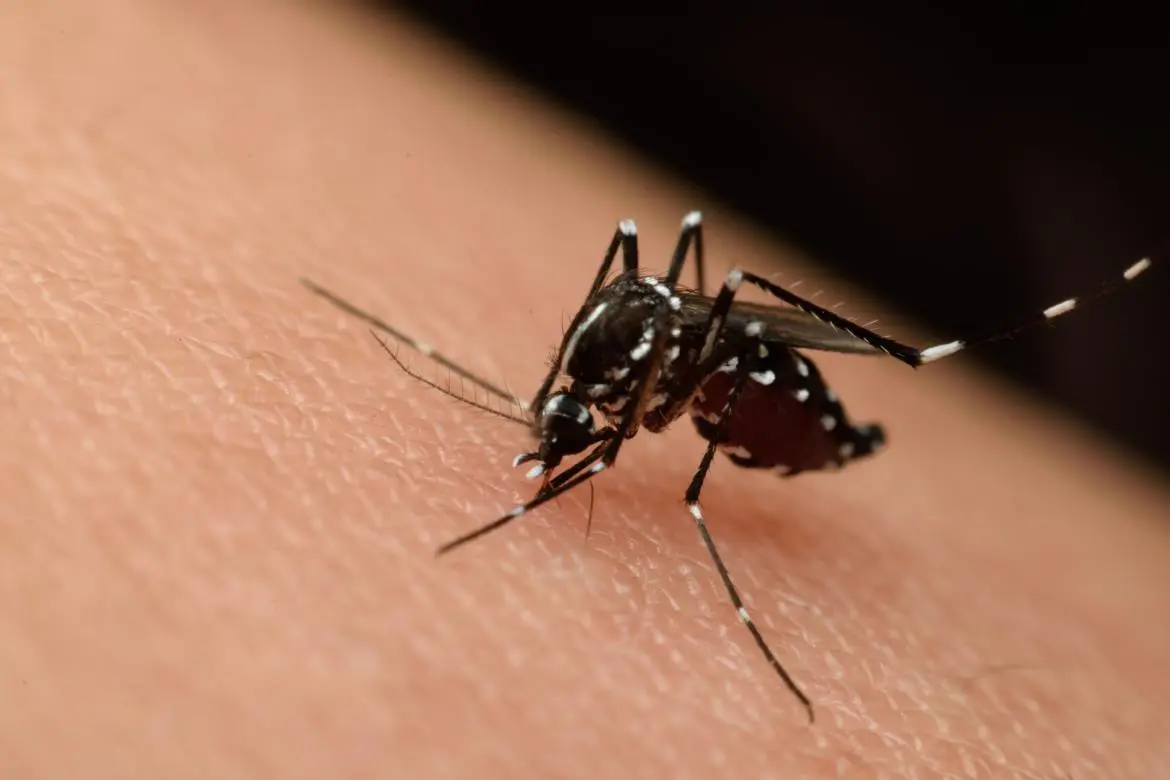

Source: Shutterstock
Is It Safe to Fly While Pregnant?
Last updated: Friday, May 7, 2021 | 4 min reading time
For some, flying can be a stressful experience and if you are flying while pregnant, it certainly doesn’t make it any easier. In this article, we will go through tips on how to stay safe when flying while pregnant.
When is it safe to travel while pregnant?
Generally, it is considered safe to fly before week 36 of pregnancy if you have a healthy pregnancy. The most optimal time in your pregnancy to fly is during your second trimester (week 13 – 28). During this period, the morning sickness and fatigue you have been feeling in the first trimester are usually gone, and your baby bump is probably still small enough for you to get around with ease. It is also after the time in your pregnancy where the risk of having a miscarriage decreases.
Nonetheless, if you are pregnant, check with your doctor before you fly.
1. Check the airline’s policies
Most airlines will not allow you to board the plane if you are more than 36 weeks pregnant. Check with your airline for their pregnant flyer policies before booking the tickets. After 36 weeks, you will likely need to produce an official doctor’s note to be cleared for flying.
Ensure that you have insurance policies as well. As a pregnant woman, you should have the necessary coverage in case of a medical emergency. This is to make sure that both you and your baby are protected while you are in another country.
2. Before flying
Prior to boarding your flight, you should have already seen a doctor to clear you for air travel. This is particularly important if you have any long-term medical conditions such as asthma or diabetes.
Be sure to pack the following to manage the likely symptoms you will experience in the air:
Compression stockings during pregnancy
Wearing compression stockings during pregnancy prevents blood from pooling and reduces the risk of an elevated heart rate in both mother and child. Additionally, compression stockings may reduce the risk of varicose veins, phlebitis, and thrombosis.Gas medication
Intestinal gas will expand as the cabin pressure decreases high up in the atmosphere. This can cause you to feel pain and pressure in your stomach. Carrying a baby doesn’t make this feel any better. Taking gas remedies can reduce the pain you experience on your flight.Nausea medication
Turbulence on a plane is inevitable. Being pregnant can make any irregular motion feel a lot worse. Taking nausea medication can help make your flight experience a lot smoother.
You should also make sure that you have everything planned out carefully from the moment you enter the departure gates to getting to your destination.Baby care on arrival
Know the medical facilities around your destination. Ensure that you are not too far away from a medical facility at any given time. It would be wise to plan for your baby in big connected cities rather than in rural areas with poor infrastructure. This is to make sure that you have quick access to a doctor in the event of an emergency.Booking optimal seats
When booking your tickets online, it would be wise to pick the seat closest to the toilet. An aisle seat will also make it easier for you to get in and out of your seat for trips to the bathroom and to walk around the cabin.Vaccines to take during pregnancy
Getting the flu shot and the Tdap (tetanus, diphtheria and pertussis) vaccine during pregnancy can protect you from infection and protect your baby after birth. This is important as infants are especially vulnerable to the flu and whooping cough. If you're travelling abroad or if you’re at increased risk of certain infections, your health care provider might also recommend other vaccines during pregnancy such as hepatitis A and hepatitis B vaccines.
3. Onboard your flight
Here are some things to consider during pregnancy while on your flight:
- Avoid certain food. Gassy food like beans, leafy vegetables, carbonated drinks and dairy products will cause a build-up in gas.
- Maintain circulation. You are more likely to develop deep vein thrombosis while pregnant. Move around as often as possible in the cabin by walking along the aisles when allowed. Avoid crossing your legs or wearing tight clothes that can restrict blood flow. When seated, flex and extend your ankles to boost circulation.
- Seat belt placement. The lap belt should be placed below your belly, touching your thighs, and low and snug on your hip bones. Never wear the belt above or across your belly.
- Stay hydrated. Not drinking and retaining enough water can make you feel fatigued, cause headaches, nausea, and more. Airplane cabins have extremely dry air circulating that can drain you of all moisture with the humidity being around 10 – 20%. Normal humidity on land is usually around 30 – 60%. You should therefore be drinking around 200ml of water for every hour you are in the air to stay hydrated.
Flying internationally
Travelling internationally can be especially risky for a pregnant woman. You will want to avoid giving birth in a foreign country for all the unnecessary paperwork and citizenship complications that may entail.
Don't fly internationally if you are:
- expecting more than 1 baby.
- experiencing any vaginal bleeding or risk of miscarriage.
- experiencing placental abnormalities.
- in your third trimester and at risk of a preterm delivery.
- not cleared by your doctor due to a chronic medical condition.
Your doctor would likely advise you not to travel if your destination is:
- at a high altitude (more than 12,000 feet).
- in an area with active epidemics.
Is it safe to fly during pregnancy? Retrieved on 19/06/2019 https://www.mayoclinic.org/healthy-lifestyle/pregnancy-week-by-week/expert-answers/air-travel-during-pregnancy/faq-20058087
Safe Flying While Pregnant. Retrieved on 19/06/2019 https://www.webmd.com/baby/taking-to-the-skies-pregnant-and-safe#1
Safe Flying While Pregnant. Retrieved on 19/06/2019 https://www.webmd.com/baby/taking-to-the-skies-pregnant-and-safe#1
 Brain & Spine Care
Brain & Spine Care









